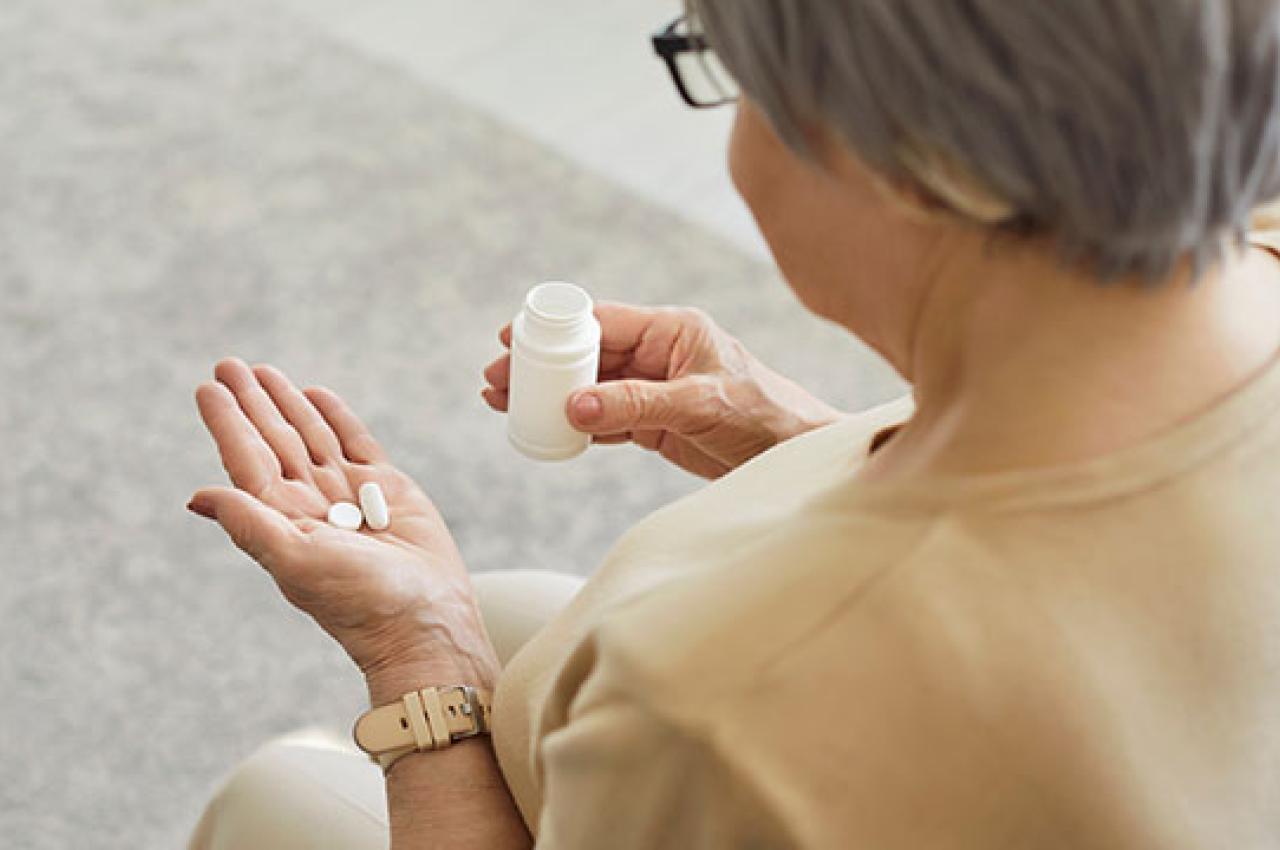What Vitamins Should I Take During Menopause for Bone Health?
Bess Dawson-Hughes, endocrinologist, senior scientist at the Jean Mayer USDA Human Nutrition Research Center on Aging, and professor of medicine at Tufts University School of Medicine, answers:
“It’s true—once we hit 50, our bones need a little extra care. In the first five years after menstruation ceases, women’s bodies face significant hormonal changes, particularly a drop in estrogen levels. This decrease in estrogen can accelerate bone loss dramatically and lead to reduced bone density, increasing the risk of osteoporosis and fractures. It’s a critical time to focus on bone health, with calcium and vitamin D playing key roles.
“Calcium is essential for maintaining bone strength, while vitamin D helps the body absorb calcium effectively. Adults over 50 need 1,000 to 1,200 milligrams (mg) of calcium per day. Research has shown that during early menopause, the body’s changing hormone levels can make calcium supplements less effective. This happens because lower estrogen levels lead to bones releasing calcium into the bloodstream, which then signals the body to reduce calcium absorption.
“Nonetheless, it is important to meet the calcium intake requirement, preferably by consuming calcium-rich foods, in early menopause and throughout the lifespan. Foods rich in calcium include dairy products like milk, cheese, and yogurt, leafy greens such as kale and spinach, and fortified foods like orange juice and cereals.
Hungry for more?
For more expert guidance on healthy cooking, eating, and living, subscribe to Tufts Health & Nutrition Letter, published each month by the Friedman School of Nutrition Science and Policy.
“For vitamin D, which is vital for calcium absorption, supplementation can be beneficial, especially during periods of low sunlight exposure. A daily intake of 600 to 800 IU of vitamin D is recommended for healthy adults. Those with conditions that increase the risk of vitamin D deficiency, such as osteoporosis, should consult their healthcare provider for personalized advice. Including vitamin D-rich foods in the diet, like low fat and fat free milk, oily fish (like wild salmon, mackerel, and tuna), and calcium-fortified foods such as orange juice, cereals, and plant-based milk substitutes can further support bone health.
“Addressing calcium and vitamin D needs during early menopause is a proactive step women can take to maintain bone health and overall well-being during this transformative stage.
“Protein also plays a role in bone health. While it’s often linked to muscle, protein is just as important for maintaining bone strength—especially as we age. In older adults, getting enough protein (about 0.8 grams per kilogram of body weight per day) is associated with higher bone mineral density and slower bone loss—as long as calcium and vitamin D needs are also met. Greek yogurt, tofu, eggs, beans, and poultry are all great options to work into meals.













